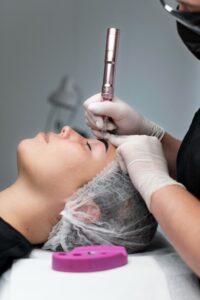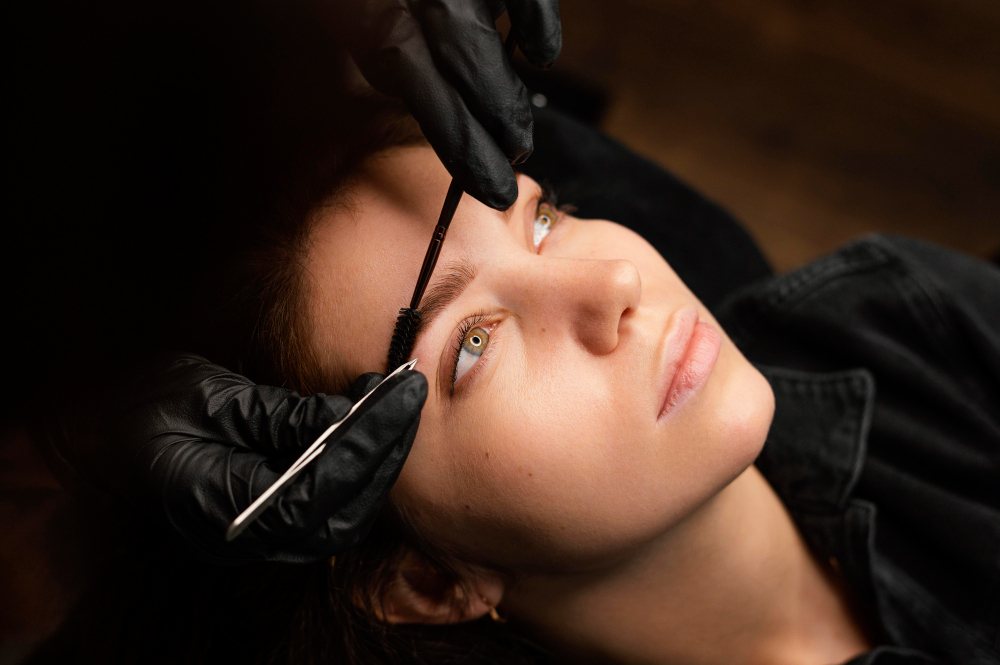What is Permanent Makeup ?
Permanent makeup, also known as cosmetic tattooing or micropigmentation, is a cosmetic procedure in which pigment is implanted into the skin to create long-lasting makeup effects. This innovative technique has gained popularity in recent years for its convenience and potential to enhance one’s appearance. However, like any cosmetic procedure, permanent makeup comes with its own set of pros and cons that individuals should consider before undergoing the treatment.
Pros of Permanent Makeup
Time-Saving: One of the primary advantages of permanent makeup is the time it saves. Individuals no longer need to spend time applying makeup daily, which can be especially beneficial for those with busy schedules.
Long-Lasting Results: Permanent makeup can last for several years, depending on the technique and the individual’s skin type. This means you can wake up with a “fresh” face every day.
Saves Money: Although the initial cost of permanent makeup can be high, it can save money over time by reducing the need for buying traditional makeup products.

Concealing Imperfections: Permanent makeup can help conceal imperfections such as scars, burns, or uneven skin tone. It can also be used to enhance or correct features like eyebrows, lips, and eyeliner.
Waterproof and Smudge-Proof: Unlike traditional makeup, permanent makeup is resistant to water and smudging, making it ideal for sports enthusiasts or those living in humid climates.
Enhances Confidence: Many individuals report an increase in self-confidence and self-esteem after permanent makeup procedures, as they feel more put together without daily makeup application.
Aging Gracefully: As people age, their ability to apply makeup may diminish. Permanent makeup ensures a consistent look, helping individuals maintain their appearance as they get older.
Medical Applications: Permanent makeup is used in medical applications such as areola reconstruction after breast surgery and camouflaging scars or vitiligo.
Cons of Permanent Makeup
Initial Discomfort: The procedure can be uncomfortable, with some individuals describing it as a sensation of scratching or stinging. However, numbing agents are typically used to minimize pain.
Permanent Mistakes: As the name suggests, permanent makeup is not easily reversible. Mistakes or dissatisfaction with the results can be challenging and expensive to correct.
Fading and Color Changes: Over time, the pigment can fade or change color, requiring touch-ups. Factors such as sun exposure, skin type, and the quality of the ink can affect the longevity of the results.
Infection Risk: Like any procedure involving the penetration of the skin, there is a risk of infection. It is essential to choose a reputable, licensed technician to minimize this risk.
Allergic Reactions: Some individuals may experience allergic reactions to the pigments used, resulting in irritation, swelling, or itching.
Uneven Healing: The healing process can vary from person to person, and sometimes the color may heal unevenly, requiring additional touch-ups to achieve the desired look.
Cost: Permanent makeup can be expensive, and it may require touch-ups every few years, adding to the overall cost.

Limited Style Changes: Your choice of permanent makeup style should be carefully considered, as it may not be as adaptable as traditional makeup. Trends and personal preferences can change, and permanent makeup may not keep up.
Regulation and Licensing: The quality and safety of permanent makeup can vary depending on the technician’s experience and training. It’s crucial to research and choose a qualified professional.
Potential Fading and Discoloration: Over time, the pigment may fade or change in color. This can result in a look that differs from the initial intention, making touch-ups necessary.
In conclusion, permanent makeup offers several benefits, including convenience, long-lasting results, and the potential to boost self-confidence. However, it is essential to consider the potential downsides, such as the discomfort of the procedure, the permanence of the results, and the need for touch-ups. Before undergoing permanent makeup, individuals should thoroughly research and choose a reputable technician, carefully consider their preferences, and be prepared for the long-term commitment that comes with this cosmetic procedure.
